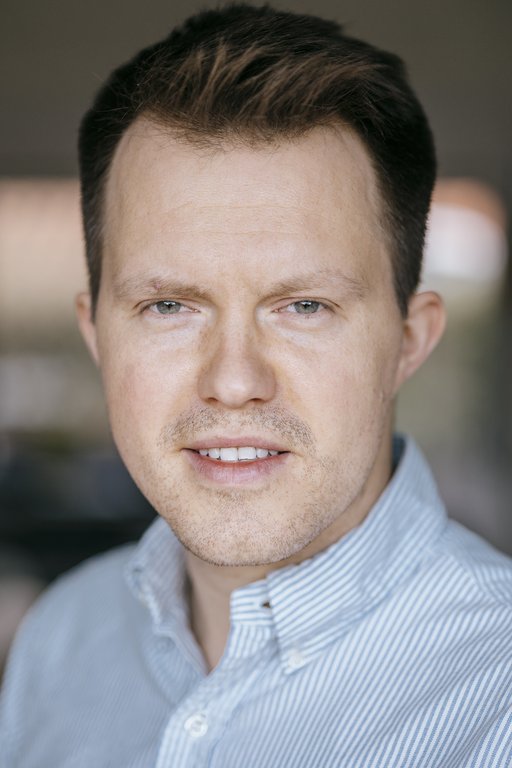MatchPoints kickstarts international collaboration for young researchers
A chance meeting with a Ukrainian researcher marked the beginning of a research collaboration that culminated in December with a publication describing the treatment effectiveness of resistant tuberculosis in Ukraine.
![[Translate to English:]](/fileadmin/_processed_/3/6/csm_Videomoede_a7d85f950b.png)

When Victor Næstholt Dahl, a physician and PhD student at the Department of Public Health, decided to attend the MatchPoints conference in the spring of 2023, he did so without great personal expectations.
Known for gathering top researchers from both Denmark and abroad, the conference has been a forum since 2007 for discussing major global challenges. In 2023, the theme was 'Global Health'.
"I didn't immediately think there would be anything particularly relevant to my own research area. The theme 'global health' is very broad, and to my knowledge, there was nothing specific about tuberculosis on the program."
A chance encounter
He attended with Ole Skouvig Pedersen, whom he was supervising and who, as a research year student, was invited to MatchPoints to present his research at a poster session, one of the networking activities at the conference.
There, the two young researchers happened to strike up a conversation with one of the foreign participants, who seemed very interested in Ole Skouvig Pedersen's poster on resistant tuberculosis.
"We noticed a man who was looking closely at the poster, and he introduced himself, explaining that he worked with tuberculosis patients in Ukraine, and that his research group had large amounts of data from across the country that they were willing to share with us if we were interested," recounts Victor Næstholt Dahl.
The researcher turned out to be Dmytro Butov, a professor from the university in the eastern Ukrainian city of Kharkiv, now residing in Germany.
A collaboration forms
Tuberculosis and resistance to the bacterium were already one of Dahl's research areas, so he was all ears when Butov revealed that he had data on tuberculosis patients from 15 of Ukraine’s 24 regions. Thus, the two young researchers could gain access to a unique dataset, as Ukraine has one of the highest occurrences of resistant tuberculosis in the world.
Dahl, Pedersen, and Butov exchanged contact details and agreed to talk further. Shortly after the conference, their collaboration took shape. Through email correspondence and video meetings, they began to develop a research project using the Ukrainian datasets to examine the treatment effectiveness of resistant tuberculosis in Ukraine and risk factors associated with poor treatment outcomes (e.g., treatment failure or death).
"Dmytro provided us with information on the treatment of nearly 2000 patients with resistant tuberculosis across most of Ukraine, allowing us to investigate the treatment outcomes and how many died or received successful treatment. We could also examine which factors were crucial for the treatment outcomes," explains Victor Næstholt Dahl.
Roles were clearly distributed during the process. The Ukrainians provided the data, while Victor Næstholt Dahl and Ole Skouvig Pedersen handled the analyses, with the latter drafting a forthcoming research article.
The collaboration faced challenges, including physical distance, language barriers, and differences in research cultures, requiring extra flexibility and patience.
"But I also found it extremely exciting to work with someone who has a completely different perspective on things than we do in Denmark, where tuberculosis truly threatens health," says Dahl.
Results published in journal
Despite the challenges, the three – in collaboration with a group of Ukrainian doctors – managed to get their results accepted in 'Clinical Microbiology and Infection'. On December 5th, the study titled 'Treatment outcomes and risk factors for an unsuccessful outcome among patients with highly drug-resistant tuberculosis in Ukraine' was published.
Among other conclusions, they found that extensively drug-resistant tuberculosis, low protein levels in the blood, psychiatric illness, advanced age, alcohol abuse, and other risk factors such as homelessness, substance abuse, and previous incarceration, influence the risk of poor treatment outcomes.
"This emphasizes the importance of patient-centered treatment focusing on each patient's challenges," Dahl explains.
Immediately, the study might not be highly relevant in Denmark, where less than 300 cases of tuberculosis are reported annually, with only a few resistant forms. However, it is interesting from a global perspective, where the disease remains one of the most common causes of death. Bacterial resistance is also assessed by WHO as one of the greatest threats to global health.
Plans for more projects
Dahl and Pedersen maintain contact with Butov and the rest of the Ukrainian research group. They plan to continue the collaboration, with the outline for the next project already taking shape. They will investigate, among other things, whether X-ray images are comparable between patients with resistant and non-resistant tuberculosis. They also plan to examine the current significance of HIV infection on the mortality of patients with resistant tuberculosis. The experiences from the collaboration and the publication of the study have changed Dahl's view on the importance and strength of international collaboration.
"I believe I have a greater understanding that major research results often lie in collaborating across borders and disciplines," he says.
Contact
PhD student Victor Næstholt Dahl
Aarhus University, Department of Public Health
Mobile Phone: +45 60 24 46 34
Mail: victordahl@ph.au.dk